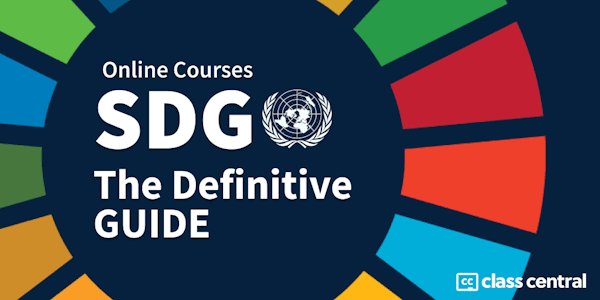Design Thinking for the Greater Good: Innovation in the Social Sector
University of Virginia via Coursera
-
3.1k
-
- Write review
Overview
Do you work for a nonprofit or in the social sector? Are you struggling to solve the problems and meet the needs of the people you serve? Come learn more about how design thinking, a human-centered approach to problem solving, can help you truly understand an issue, generate ideas worth testing and iterate to find solutions that make a real difference. Through global stories from areas as diverse as government, health care, and education, we’ll show you the tools, techniques and mindset needed to use design thinking to uncover new and creative solutions in the social sector.
The development of this course was supported by the Batten Institute for Entrepreneurship and Innovation at the University of Virginia's Darden School of Business. For more about the Batten Institute, see:
http://www.darden.virginia.edu/batten-institute/
@BattenInstitute
@DesignatDarden
Syllabus
- DESIGN THINKING FUNDAMENTALS
- Welcome to the first week of Design Thinking in the Social Sector! This week, we provide an overview of design thinking: what it is, why it is different, and why we need it in these uncertain times, especially in complex organizations. We’ll examine the four simple questions at the heart of the design thinking methodology, and illustrate that approach with a visit to the Kingwood Institute in the UK. We’ll conclude this module by giving you a chance to hear from some other experts – Angela Meyer on the visualization tool and Dan Pink on six abilities that matter most.
- BEFORE YOU BEGIN, AND ASKING "WHAT IS?"
- Welcome back! This week, we’ll examine the types of problems that are well-suited for design thinking. We'll recognize what we need to do before we begin a project, and then take a deep dive into the first question in the design thinking process, “What is?” and the concepts of insights and design criteria. You’ll see how asking “What is?” helped improve daily living for adults with autism, their families, and the staff of the Kingwood Trust. Then we’ll look at the Monash University Medical Centre in Australia and how it asked this same question to make patient-centered care a reality. Along the way you’ll learn about two design tools: journey mapping and repertoire.
- A MINDSET FOR INNOVATION, AND ASKING "WHAT IF?"
- Welcome back! This week, we'll continue our exploration of repertoire and a "mindset for innovation" through two personas we call George and Geoffrey. We'll examine the question "What If?" as a way to think about possibilities. You'll look closely at how brainstorming within the design thinking process helped organizations as different as the Federal Drug Administration and the leaders of a small town of Iveragh, Ireland. This week's tools, storytelling and stakeholder mapping, illustrate ways to gather more information about projects and users.
- ASKING "WHAT WOWS?" AND "WHAT WORKS?"
- Welcome to our final week! This week we transition from idea generation to testing by examining the intersection of what stakeholders want and what the organization can sustainably offer. We'll consider the role of prototypes as a way to test our assumptions about a solution, and consider what it takes to launch a solution into practice, and see real-life examples of prototyping and testing in social sectors as diverse as healthcare and agriculture. You'll begin to think about your own social sector challenge you could tackle with design thinking. We end this week with some advice and actions for impact.
Taught by
Jeanne M. Liedtka
Tags
Reviews
3.0 rating, based on 2 Class Central reviews
4.7 rating at Coursera based on 402 ratings
Showing Class Central Sort
-
I loved the way this course included so many examples of design thinking in use in healthcare and even farming. The stories helped me understand its application into the social sector.
-
thank you,
After to see this title of cause I get it wonderful thing for human being and me I am interested for it like Pastor who I am.




